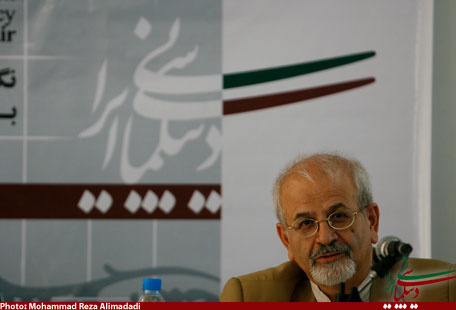Palestine in Pursuit of Statehood

MS: Mahmoud Abbas, the chairman of the PLO, will present the “recognition of the independent Palestine” plan in the 66th General Assembly of the UN. In order to understand the current situation better, we should go back 64 years, when the second General Assembly of the UN was held in Sept. 1947: England then announced that it had to withdraw its patronage of Palestine and asked the UN to resolve the problem that arose. Consequently, the General Assembly proposed two solutions: 1.) A two-government formula; and 2.) A single federal government formula. Ultimately, the first formula was voted for.
History shows that in the past 64 years there were some changes in the region that consistently endangered regional peace and security. The complexity of the Palestinian issue is due to the multitude of involved actors, as the country is known as the home of an international struggle with the highest number of actors involved. It is interesting that just twelve minutes after the conclusion of Declaration 181 (known as the Sharing Declaration), Truman’s US government officially recognized Israel and that created many challenges in the relations between the US and Palestine.
It is for almost twenty years that the Palestinians, especially those connected to the PLO, have employed international law for their campaign. The Arabs have also followed various decelerations in the UN and other international organizations. In this regard, when the Mahmoud Abbas government understood that their negotiations with the Netanyahu government would be futile, it proposed the recognition of the country to reduce domestic pressures, to put more pressure on Israel through the US, and to show it is still involved in the issue. According to its proposed plan, a Palestinian government will be formed during two years, as the IMF and World Bank’s reports show that this government can be fully working. Finally, the Palestinians announced that they wanted to promote the legal position of the PLO to a government and Mahmoud Abbas has made many attempts, which have been met with good international reaction.
The Third World and the Arab world thoroughly agree with the issue, as it is a part of their struggle. The EU’s position partly agrees with and partly disagrees with that of the US in the Palestinian issue. It can be claimed that there is a struggle over Palestine between the US and Europe, while there is not a single position in the EU about the Palestinian issue. But what is the most important thing here is the position of the US, its measures, and the consequences: in the Obama era, the Palestinian issue can be analyzed in two different periods: the so-called George Michael (the US ad-hoc representative in the US-Israel negotiations) time, and the period after that, as he was one of the most influential persons in Northern Ireland’s struggle, but he was faced with the inflexibility of Netanyahu and the intensification of US-Israel relations and was obliged to resign. In the second period, the US can be best described as the impediment to the Palestinian legal measures, as the veto of the Obama’s government was a unique measure in February to nullify the Palestinian declarations on the building the townships. In the case of the recognition of Palestine, Obama and the US State Department led by Mrs. Clinton have essentially promised to veto it in the Security Council.

